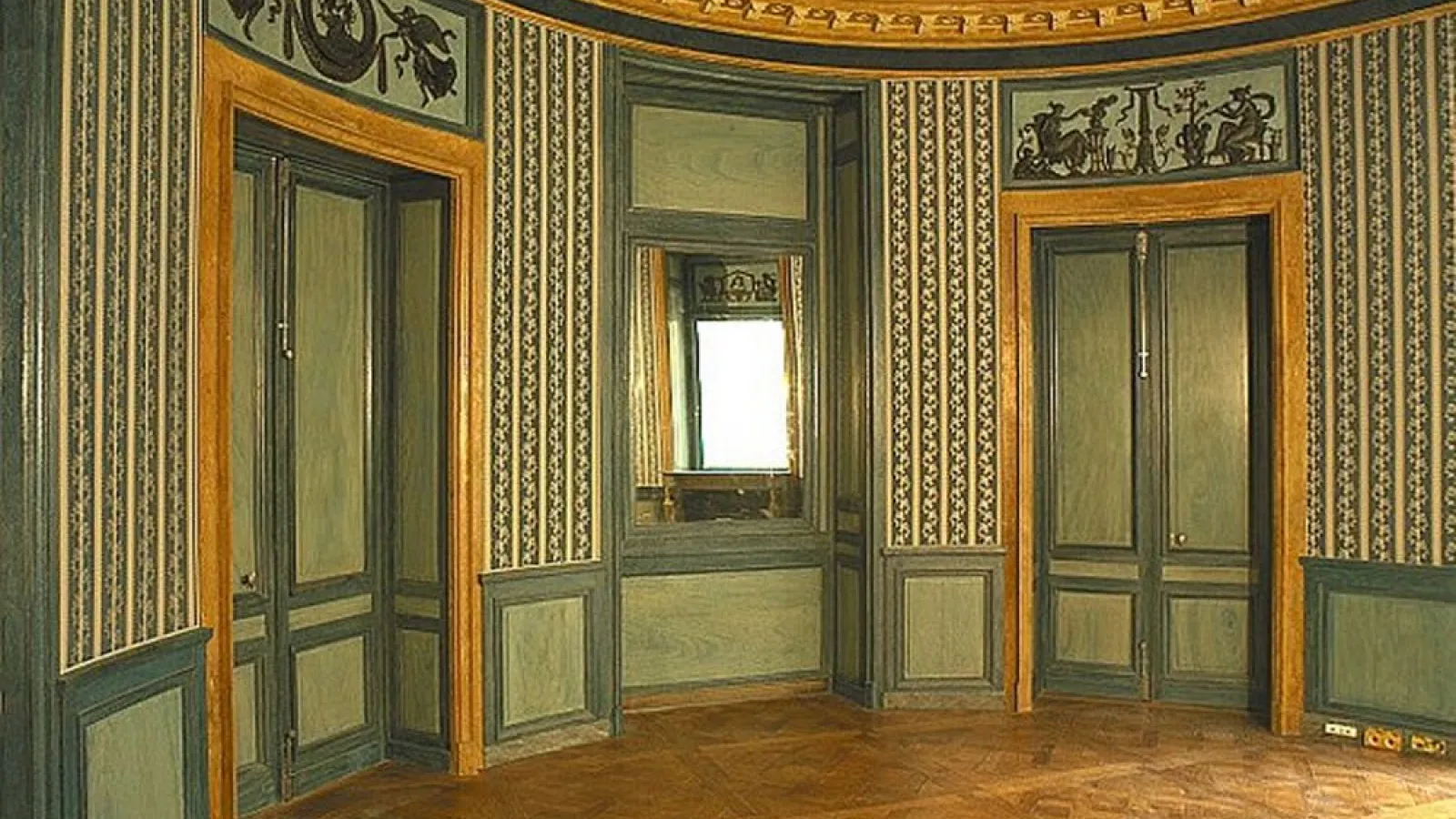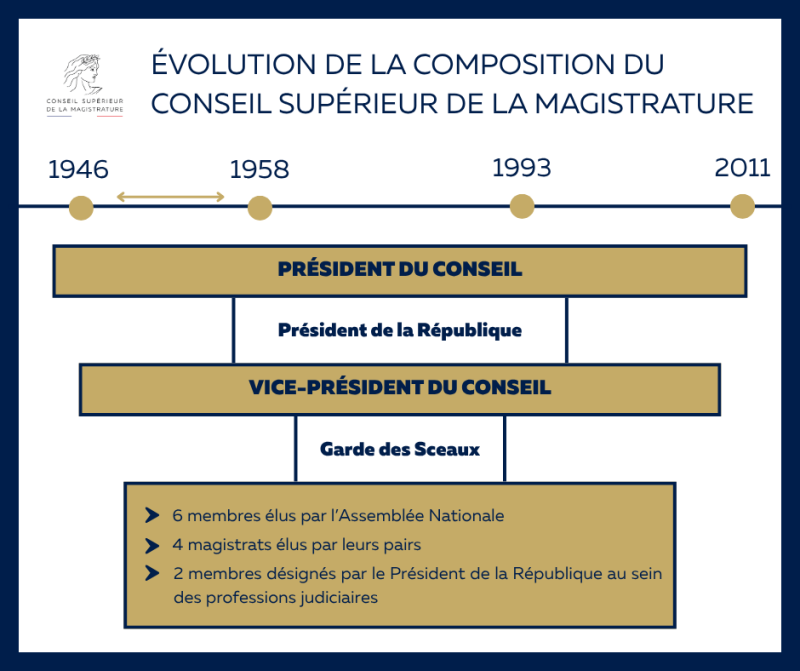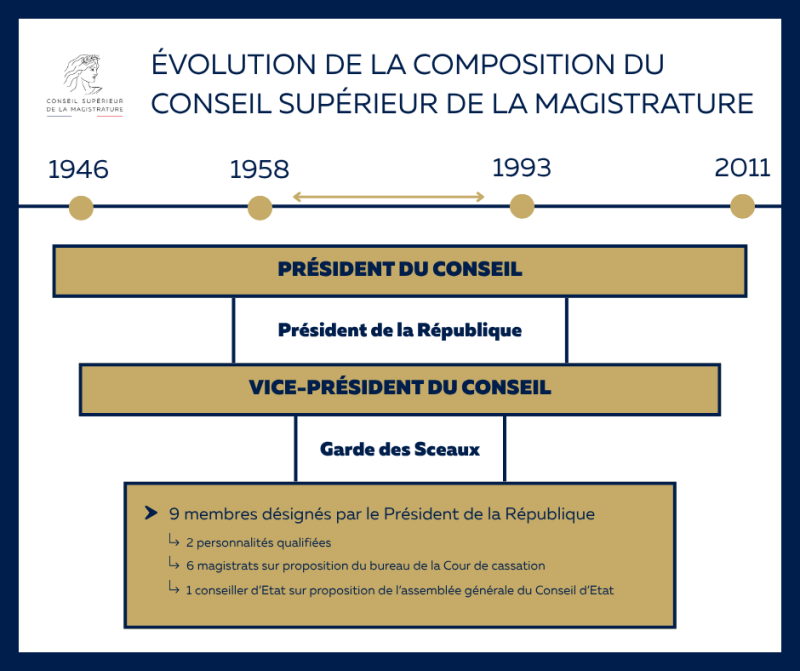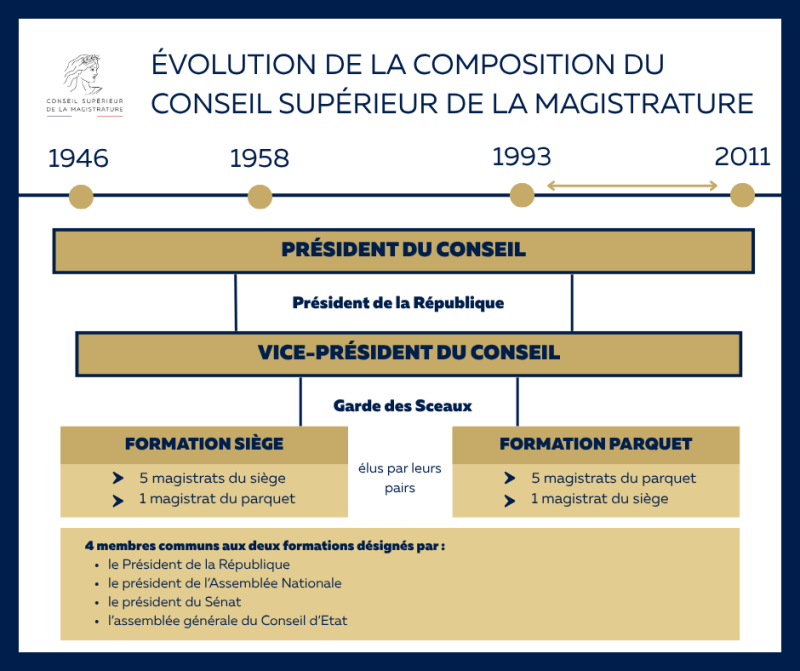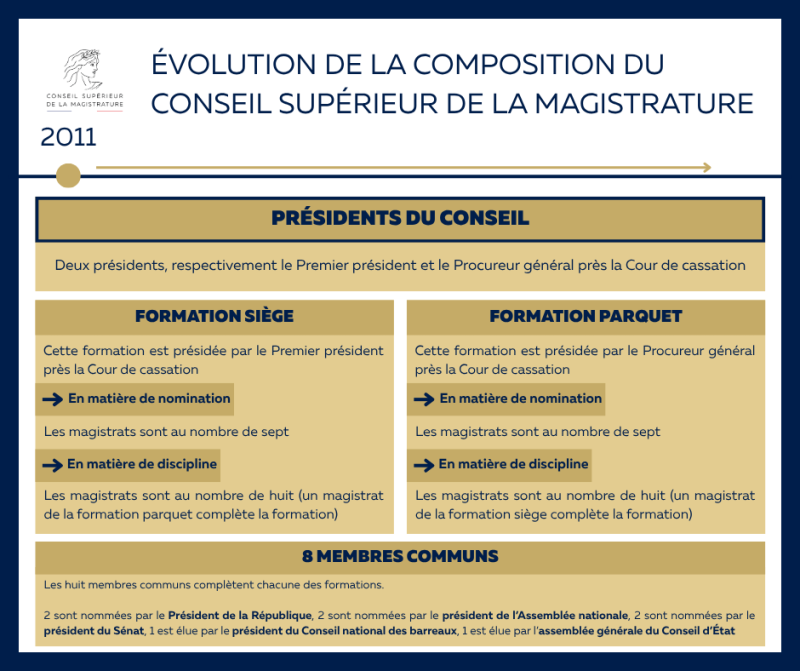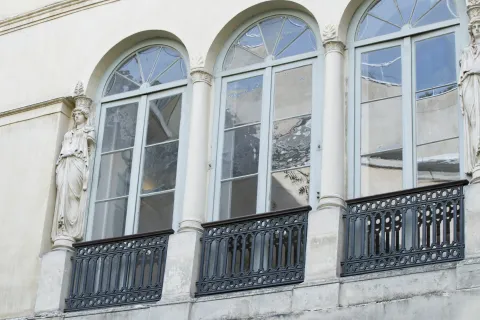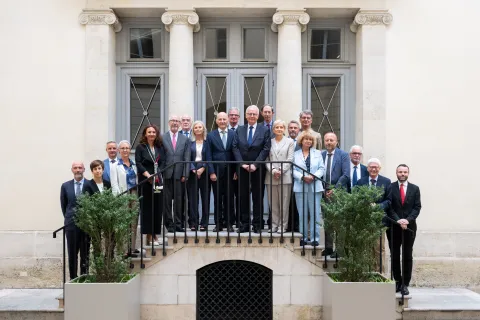La Constitution du 27 octobre 1946 en fait un organe constitutionnel autonome.
Le Conseil supérieur de la magistrature est consacré dans la Constitution de la 4ème République, qui marque la volonté de fonder une justice indépendante, dans un contexte marqué par le serment de fidélité prêté par les magistrats au Maréchal Pétain dans le cadre du régime de Vichy.
Le Conseil est alors présidé par le Président de la République, le garde des sceaux étant son vice-président. II est composé de six membres élus par l’Assemblée nationale, quatre magistrats élus par leurs pairs et deux membres désignés, au sein des professions judiciaires, par le Président de la République.
Les compétences du Conseil sont élargies à la nomination des magistrats du siège, pour lesquels il dispose du pouvoir de proposition.
